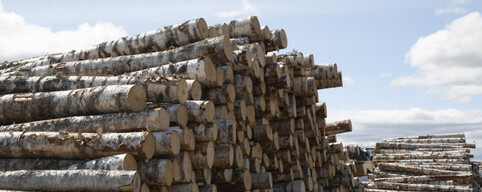

Panama's timber exports did not show significant growth last year, but this apparent stagnation masks a series of strategic transformations in the country's export matrix. Although volumes did not increase dramatically, the focus has shifted towards higher value-added products, a change that could be essential for the sustainable development of Panama's forestry sector.
One of the most notable developments is the shift in Panama's export strategy toward processed wood products, which now represent a significant part of the country's trade. This shift is not only a response to global market trends, but also a thoughtful move to meet demanding European standards.
This strategic shift has had a positive impact on Panama's ability to access the European market, one of the largest and most demanding in the world in terms of quality and sustainability. By complying with the European Union Deforestation Regulation (EUDR) regulations, which seek to avoid deforestation and promote sustainable practices, Panama can now export wood products that meet the strictest regulations.
This compliance has not only opened up new market opportunities, but has also highlighted Panama's ability to innovate in its forestry sector. The adoption of the EUDR represents a crucial opportunity for Panama to develop products that align with the sustainability and quality requirements demanded by the European Union. It is not only about complying with regulations, but also about leading the way towards more sustainable and responsible forestry exports.
The opportunity to access this unprecedented market represents a challenge and, at the same time, an opportunity for Panama to stand out in the region and position itself as a reliable and sustainable supplier of wood products. The strict implementation of these standards has begun to create a niche for forest products that meet high environmental standards, which benefits not only the national economy but also the global environment.
In this context, teak has been identified as the most extensive and certified forest crop in Panama, underscoring its importance not only economically but also ecologically within the country. This tropical wood, valued for its durability and resistance to adverse weather conditions, aligns perfectly with the sustainability criteria that the European market values.
However, to maximize the gains from this new market opening, it is essential for the country to invest in improved wood processing and quality control. Developing advanced technological capabilities in wood processing will not only ensure continued compliance with European standards, but will also increase the value and competitiveness of Panamanian products.
Therefore, beyond simply complying with European regulations, Panama has the opportunity to redefine its forestry sector with advanced precision processing and quality control. This will create a virtuous circle where positive economic impact is complemented by environmental benefits, strengthening the country's global image as a benchmark in sustainability and quality.
Ultimately, this move towards processed wood products not only reflects an adaptation to external demands, but also positions Panama in a key role in the export of sustainable products to the world market. With the right measures, the forestry sector could become a driver of economic development and a pillar of environmental responsibility in the country.



